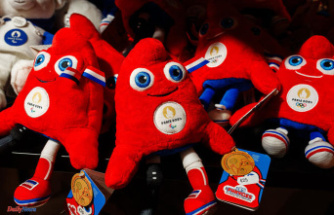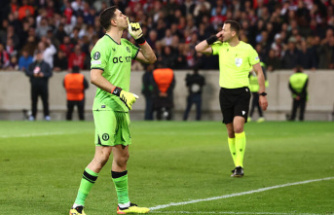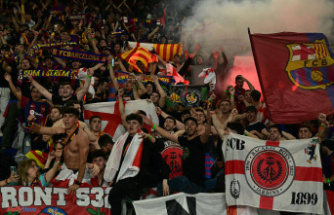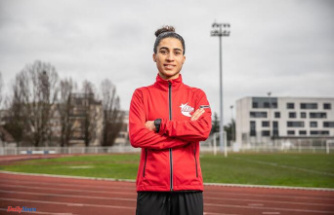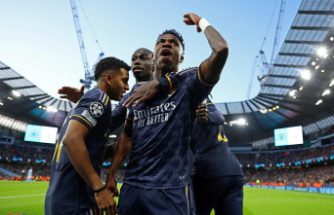The German national soccer team is out early at the World Cup, and Qatari TV says goodbye with scornful waves and mouth-to-mouth gestures. This will probably keep the DFB team busy for a long time. And even before the opening game, there are big discussions that divide the players.
Behind the scenes of the German national soccer team, it is said to have crackled before the opening game of the World Cup in Qatar. The quarrels about the ban on the "One Love" bandage and the resulting discussion about another sign are said to have kept the team busy. This is reported by the ARD sports show. The players are said to have been "annoyed" and "burdened" by the topic.
The day before the start of the tournament, FIFA unexpectedly ironed out the joint action by a total of seven European participating nations, a sign of diversity and tolerance, in the strictly religious desert state of Qatar. Should a team oppose the ban, the world association threatened unspecified harsh penalties that would result in sporting consequences.
The "One Love" bandage was therefore forbidden, but the German public in particular demanded a sign. Unlike the other nations involved, such as England or the Netherlands, the DFB did not shelve the issue of a gesture for human rights. In the few days between the ban on the bandage by FIFA and the start against Japan, it was not just about sport, but also about socio-political issues. The pressure was great after Leon Goretzka, among others, announced a clear sign of human rights on ZDF in the run-up to the tournament.
But a large part of the team felt "instrumentalized" in the search for alternatives to the bandage. Only the day after the 1-2 bankruptcy, which finally resulted in the end of the group phase, did the team speak out and end the topic. Julian Brandt and Kai Havertz reported on a plain text session. The players had previously found themselves in some tough controversies, it is said. PR expert Raphael Brinkert is also said to have been involved in the discussions. The managing director of an advertising agency paid for by the DFB also advises Goretzka and is familiar with crisis management.
Suggestions for alternatives to the bandage are said to have been made in the group consisting of the top management of the association, national team manager Oliver Bierhoff as well as the marketing department and captain Manuel Neuer. According to the sports show, however, a large part of the team rejected a "heart symbol", also because this could be seen as an affront to Muslims.
Only the mouth-to-mouth gesture then shown is said to have been accepted as the "lowest common denominator". Only Neuer and Goretzka were really convinced of a sign. In the end, covering your mouth was primarily seen as a criticism of FIFA, which had banned the bandage. The DFB had spread the message: "Forbidding us to wear bandages is like banning our mouths. Our position stands."
The gesture went around the world in photos - the only time it happened was during the team photo ahead of the game against Japan. But the discussion about this sign will continue for a long time. Not only because critics of Germany and the DFB team misinterpreted it and used it against them. For example, from men in the second DFB game against Spain, who wanted to refer to the double standards with Özil pictures in the stands, or the Qatari TV presenters, who made fun of the German end in the group phase with the mouth-to-mouth gesture.
But also because a sign should have been set long before the World Cup, as reported by the sports show. According to this, there was an elaborate campaign at the DFB, in good time before the trip to Qatar every participant of the German delegation should have known the position of the association. This means: against discrimination of any kind, for diversity and human rights. But the association could not bring itself to really start the campaign. Therefore, the choice ultimately fell on the joint sign with other European associations via the "One Love" bandage. But FIFA just banned this shortly before.


